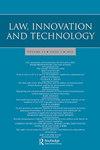Regulation, innovation and disruption: the European Medicines Agency and adaptive licensing of pharmaceuticals
Q1 Social Sciences
引用次数: 2
Abstract
ABSTRACT Growing concerns over the related problems of speedily bringing innovative pharmaceuticals (especially so-called precision medicines) to market, and addressing areas of unmet medical need, have engendered critical scrutiny of the existing process for the licensing of pharmaceutical products. The objective is to enable these products to receive approval sooner, but on the basis of the provision of less complete evidence, than was previously the case. This article examines the attempts made to tackle this issue at European Union level, through a pilot programme exploring ‘adaptive’ approaches to licensing operated by the European Medicines Agency. Responses to this initiative indicate significant difficulty in securing regulatory legitimacy in this context. This suggests that innovative pharmaceutical technologies are disruptive of existing regulatory frameworks, such that future attempts to accommodate them within these may be susceptible to failure.监管、创新和颠覆:欧洲药品管理局和药品的适应性许可
摘要:人们对快速将创新药物(尤其是所谓的精准药物)推向市场以及解决未满足医疗需求领域的相关问题日益担忧,这引发了对现有药品许可程序的严格审查。目标是使这些产品能够更快地获得批准,但前提是提供的证据不如以前完整。本文探讨了通过欧洲药品管理局实施的探索“适应性”许可方法的试点计划,在欧盟层面解决这一问题的尝试。对这一举措的回应表明,在这方面确保监管合法性存在重大困难。这表明,创新的制药技术破坏了现有的监管框架,因此未来将其纳入这些框架的尝试可能会失败。
本文章由计算机程序翻译,如有差异,请以英文原文为准。
求助全文
约1分钟内获得全文
求助全文
来源期刊

Law, Innovation and Technology
Social Sciences-Law
CiteScore
4.50
自引率
0.00%
发文量
18
期刊介绍:
Stem cell research, cloning, GMOs ... How do regulations affect such emerging technologies? What impact do new technologies have on law? And can we rely on technology itself as a regulatory tool? The meeting of law and technology is rapidly becoming an increasingly significant (and controversial) topic. Law, Innovation and Technology is, however, the only journal to engage fully with it, setting an innovative and distinctive agenda for lawyers, ethicists and policy makers. Spanning ICTs, biotechnologies, nanotechnologies, neurotechnologies, robotics and AI, it offers a unique forum for the highest level of reflection on this essential area.
 求助内容:
求助内容: 应助结果提醒方式:
应助结果提醒方式:


